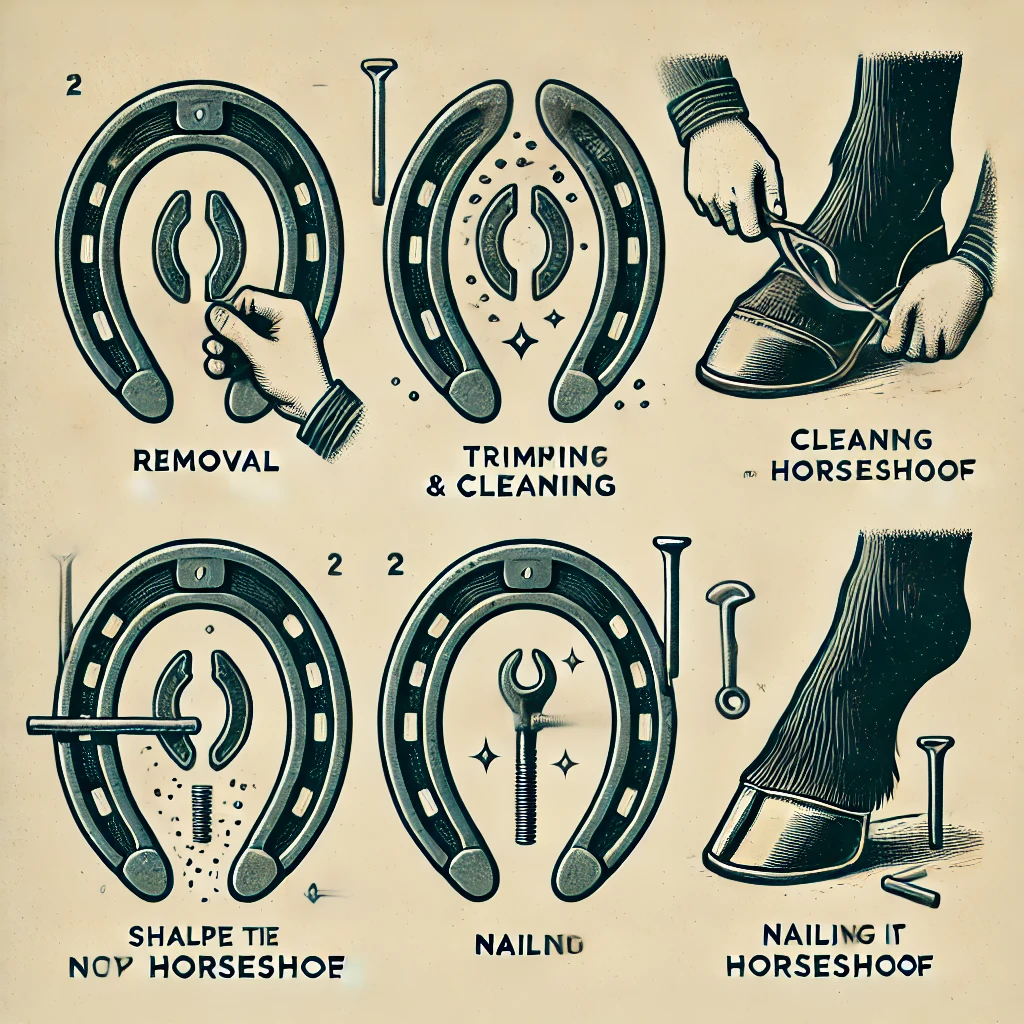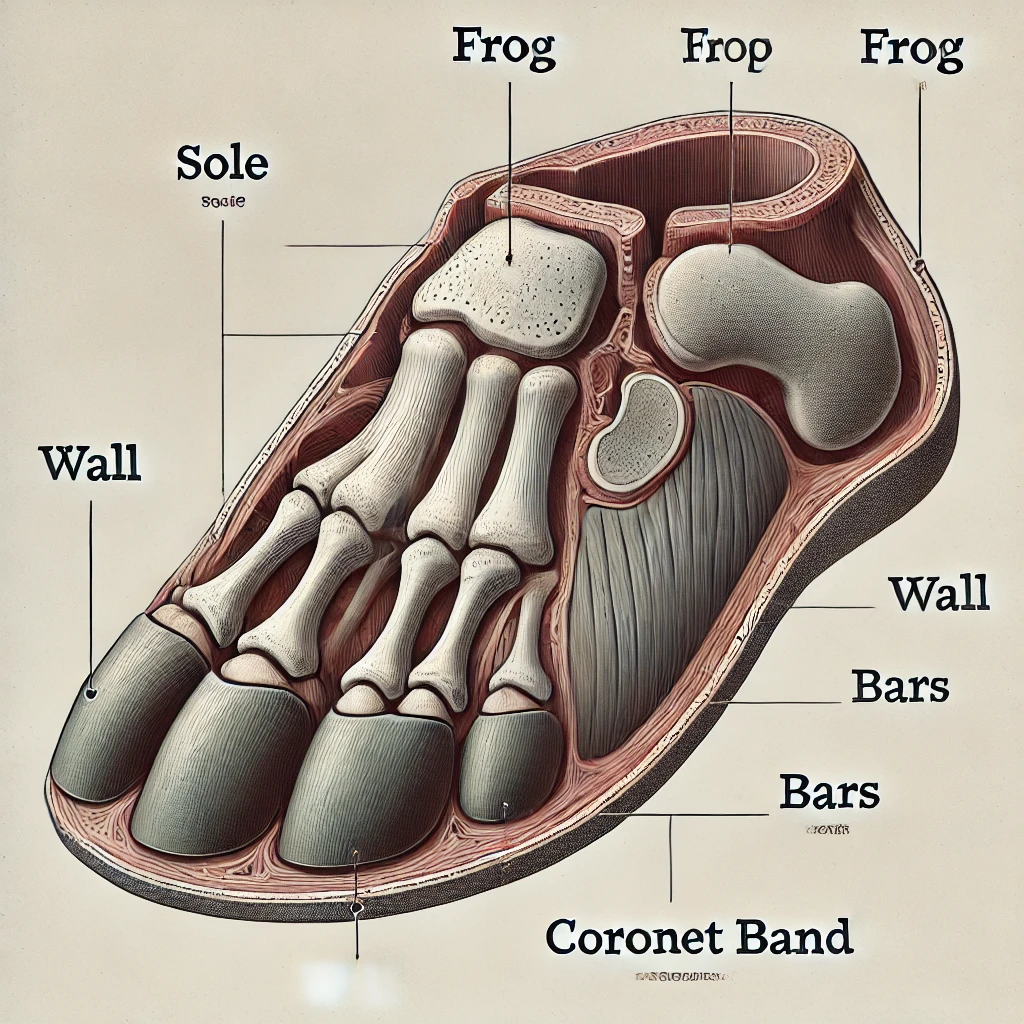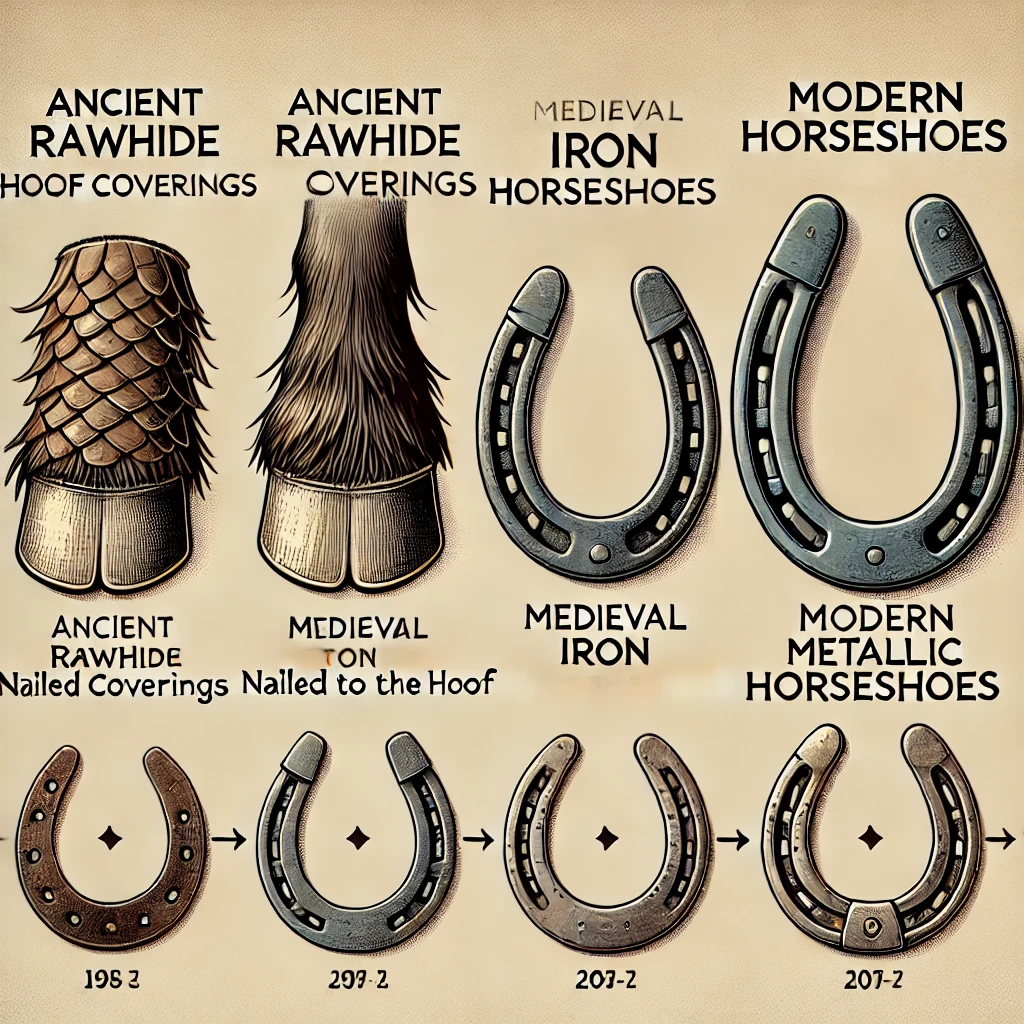Horseshoeing is an age-old practice that’s deeply rooted in equestrian care. But why do horses need shoes in the first place? What makes a horse’s hooves so special that they require additional protection? Let’s delve into the fascinating world of horseshoeing and explore its purpose, benefits, and much more.

The Evolution of Horseshoeing
Early Methods of Hoof Protection
Horseshoes date back to ancient civilizations. Early horse caretakers used rawhide or metal plates to protect hooves from excessive wear. Over time, blacksmiths refined this practice, leading to the metal horseshoes we recognize today.
Modern Horseshoes and Their Materials
Today, horseshoes come in a variety of materials, including steel, aluminum, and even rubber. Each type serves a specific purpose, from durability for workhorses to lightweight designs for racehorses.
Anatomy of a Horse’s Hoof
Why Hoof Health Is Crucial
A horse’s hoof acts as both a shock absorber and a support structure. Its health directly impacts the horse’s mobility and overall well-being.
How Shoes Support Hoof Structure
Shoes protect the hoof from cracking, excessive wear, and injuries caused by rugged terrain. They also provide traction, which is vital for working or performance horses.

Do Horses Need Shoes?
Horses That Require Shoes
Not all horses need shoes, but those exposed to hard surfaces or performing strenuous activities often do.
Work Horses vs. Leisure Horses
Workhorses, like those used in agriculture or logging, require sturdy shoes to handle heavy loads. Meanwhile, leisure horses may only need shoes in specific situations.
Horses in Different Terrains
Horses traveling on rocky or uneven terrain are more prone to hoof damage and benefit greatly from shoes.
Barefoot Horses: An Alternative Approach
When Horses Can Go Without Shoes
Some horses with strong, healthy hooves and access to soft ground can thrive without shoes.
Benefits of a Barefoot Lifestyle
Going barefoot can improve hoof strength and allow for more natural wear patterns. However, it requires careful management.
Why Shoe a Horse?
Protection and Comfort
Preventing Injuries and Wear
Shoes act as a barrier between the hoof and abrasive surfaces, reducing the risk of splits and cracks.
Enhancing Performance for Specific Activities
Specialized shoes can improve performance, whether it’s for jumping, racing, or pulling heavy loads.
Corrective Shoeing
Addressing Gait or Balance Issues
Corrective shoes help adjust a horse’s gait, ensuring even weight distribution.
Treating Hoof Diseases and Disorders
Conditions like laminitis can be managed with specialized shoe designs.
Why Do Horses Need Shoes But Not Cows?
Structural Differences in Hooves
Horse Hooves vs. Cow Hooves
Horse hooves are single structures, while cows have cloven hooves, making their wear and tear different.
Differences in Lifestyle and Usage
Cows typically don’t face the same workload or terrain challenges as horses, reducing their need for hoof protection.
How Often Do Horses Need New Shoes?
Signs It’s Time for New Shoes

Worn or Loose Shoes
Shoes that are visibly worn or have become loose should be replaced immediately.
Changes in Hoof Growth
Rapid hoof growth can outpace the shoe, necessitating a new fitting.
Scheduling Regular Farrier Visits
Most horses require new shoes every 4-6 weeks to accommodate hoof growth and wear.
What Are Horseshoes For?
Enhancing Performance and Safety
Horseshoes provide stability, prevent slipping, and enhance a horse’s ability to perform tasks.
Special Shoes for Racehorses
Racehorses often wear lightweight shoes to maximize speed while maintaining hoof protection.
How Much Does a Horseshoer Make?
Factors Influencing Income
Location and Demand
Farriers in high-demand areas can earn significantly more.
Skill Level and Experience
Experienced farriers with specialized skills command higher fees.
Average Earnings of a Farrier
On average, farriers earn $50,000 to $80,000 annually, with top professionals making over $100,000.
Why Don’t Wild Horses Need Shoes?
Natural Hoof Maintenance
Wild Horses’ Constant Movement
Wild horses roam vast terrains, naturally wearing down their hooves.
Adapting to Their Environment
Their lifestyle and diet also contribute to maintaining hoof health without human intervention.
The Role of Domestication
Domesticated horses often encounter surfaces and workloads their hooves aren’t naturally equipped to handle.
Do Racehorses Wear Shoes?
Types of Shoes for Racing
Racehorses typically wear lightweight aluminum shoes designed for speed and agility.
The Importance of Lightweight and Durable Materials
These shoes strike a balance between protecting the hoof and enhancing performance.
Conclusion
Horseshoes play a vital role in protecting and enhancing horses’ performance. Whether for work, leisure, or racing, shoes are tailored to each horse’s specific needs. While wild horses don’t require shoes due to their natural lifestyle, domesticated horses benefit immensely from the added protection and support.
FAQs
1. How often should I change my horse’s shoes?
Most horses need new shoes every 4-6 weeks to accommodate hoof growth and wear.
2. Can all horses go barefoot?
Not all horses can thrive without shoes. Factors like hoof health, terrain, and workload determine their needs.
3. How do I know if my horse needs shoes?
Signs like cracked hooves, excessive wear, or difficulty walking on hard surfaces indicate
a need for shoes.
4. Are there alternatives to metal horseshoes?
Yes, there are synthetic and rubber options and hoof boots for temporary protection.
5. Do horseshoes hurt the horse?
When applied correctly, horseshoes do not cause pain, as they are nailed into the insensitive part of the hoof.
